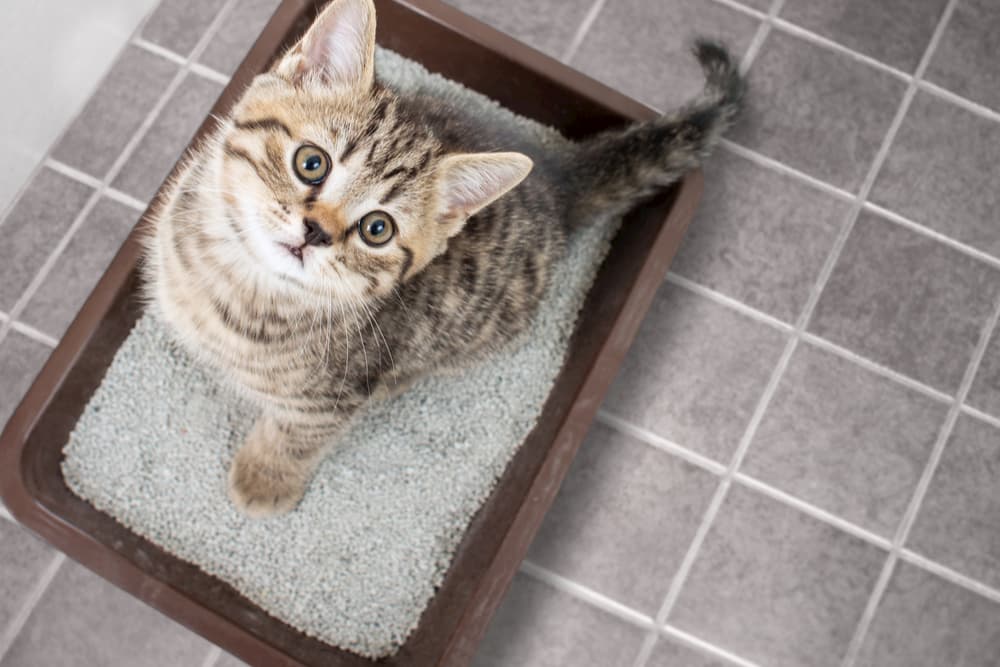Avoid Clogs and Damage: Don't Flush Cat Poop Down Your Toilet - Expert Insights
Avoid Clogs and Damage: Don't Flush Cat Poop Down Your Toilet - Expert Insights
Blog Article
The author is making several great pointers related to Can You Flush Cat Poop Down The Toilet? in general in this post beneath.

Introduction
As cat owners, it's vital to be mindful of exactly how we dispose of our feline buddies' waste. While it may seem hassle-free to flush pet cat poop down the commode, this practice can have harmful repercussions for both the atmosphere and human wellness.
Alternatives to Flushing
The good news is, there are much safer and extra responsible ways to get rid of pet cat poop. Take into consideration the adhering to choices:
1. Scoop and Dispose in Trash
The most common method of getting rid of feline poop is to scoop it into a naturally degradable bag and throw it in the garbage. Make certain to utilize a dedicated litter inside story and throw away the waste promptly.
2. Use Biodegradable Litter
Choose naturally degradable feline litter made from materials such as corn or wheat. These litters are environmentally friendly and can be safely gotten rid of in the garbage.
3. Hide in the Yard
If you have a lawn, consider burying pet cat waste in a marked location far from veggie gardens and water sources. Make certain to dig deep adequate to avoid contamination of groundwater.
4. Mount a Pet Waste Disposal System
Buy a pet dog waste disposal system specifically designed for cat waste. These systems make use of enzymes to break down the waste, lowering smell and environmental effect.
Health and wellness Risks
In addition to ecological issues, flushing pet cat waste can likewise position health and wellness threats to human beings. Pet cat feces may include Toxoplasma gondii, a bloodsucker that can trigger toxoplasmosis-- a potentially severe ailment, specifically for expectant women and people with damaged immune systems.
Ecological Impact
Purging cat poop presents dangerous pathogens and parasites right into the water system, positioning a significant danger to aquatic communities. These impurities can negatively influence marine life and compromise water quality.
Final thought
Responsible pet dog possession extends past offering food and sanctuary-- it likewise involves appropriate waste management. By avoiding flushing pet cat poop down the toilet and going with alternative disposal techniques, we can minimize our environmental footprint and protect human health and wellness.
Why Can’t I Flush Cat Poop?
It Spreads a Parasite
Cats are frequently infected with a parasite called toxoplasma gondii. The parasite causes an infection called toxoplasmosis. It is usually harmless to cats. The parasite only uses cat poop as a host for its eggs. Otherwise, the cat’s immune system usually keeps the infection at low enough levels to maintain its own health. But it does not stop the develop of eggs. These eggs are tiny and surprisingly tough. They may survive for a year before they begin to grow. But that’s the problem.
Our wastewater system is not designed to deal with toxoplasmosis eggs. Instead, most eggs will flush from your toilet into sewers and wastewater management plants. After the sewage is treated for many other harmful things in it, it is typically released into local rivers, lakes, or oceans. Here, the toxoplasmosis eggs can find new hosts, including starfish, crabs, otters, and many other wildlife. For many, this is a significant risk to their health. Toxoplasmosis can also end up infecting water sources that are important for agriculture, which means our deer, pigs, and sheep can get infected too.
Is There Risk to Humans?
There can be a risk to human life from flushing cat poop down the toilet. If you do so, the parasites from your cat’s poop can end up in shellfish, game animals, or livestock. If this meat is then served raw or undercooked, the people who eat it can get sick.
In fact, according to the CDC, 40 million people in the United States are infected with toxoplasma gondii. They get it from exposure to infected seafood, or from some kind of cat poop contamination, like drinking from a stream that is contaminated or touching anything that has come into contact with cat poop. That includes just cleaning a cat litter box.
Most people who get infected with these parasites will not develop any symptoms. However, for pregnant women or for those with compromised immune systems, the parasite can cause severe health problems.
How to Handle Cat Poop
The best way to handle cat poop is actually to clean the box more often. The eggs that the parasite sheds will not become active until one to five days after the cat poops. That means that if you clean daily, you’re much less likely to come into direct contact with infectious eggs.
That said, always dispose of cat poop in the garbage and not down the toilet. Wash your hands before and after you clean the litter box, and bring the bag of poop right outside to your garbage bins.
https://trenchlesssolutionsusa.com/why-cant-i-flush-cat-poop/
Do you really like more info about How to Dispose of Cat Poop and Litter Without Plastic Bags? Make a remark directly below. We'd be interested to listen to your reactions about this content. We hope that you come back again before long. Are you aware of somebody else who is truly interested in the topic? Take a moment to share it. Kudos for your time. Please pay a visit to our blog back soon.
Book My Estimate Report this page